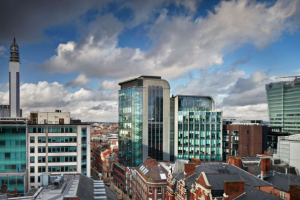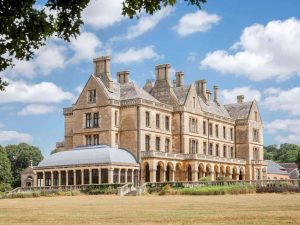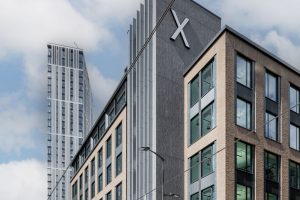Comment: Paradise found

ANYONE who has a stake in the future prosperity of Birmingham will be delighted to have read the reports this week about the large-scale regeneration plans for the city centre.
Argent’s long-awaited scheme to turn a pretty grotty part of town – Paradise Forum and the Central Library – into a Brindleyplace-style destination with new squares and pedestrianised areas, state of the art offices and leisure facilities can’t come quickly enough as far as I’m concerned.
There has long been a need for the city to ‘open up’ the space between Colmore Row and Chamberlain Square and Centenary Square and now there seems to be a clear pathway to doing it.
Much praise should go to Argent for doggedly persevering for a number of years with a project that will be the biggest in the city since the old Bull Ring Shopping centre was abolished and the new Bullring built.
And credit also to the Greater Birmingham and Solihull LEP and the city council for using the enterprise zone as a way of unlocking the funding potential of future business rates. It’s an idea that has worked in the US and is a smart solution during an era when commercial property development funding is pretty impossible to find.
I do have a couple of concerns, however.
I have argued in the past that Birmingham’s enterprise zone shouldn’t be in the city centre – which is still relatively prosperous – but used elsewhere as a way of bringing investment into one of its ailing suburbs – such as Washwood Heath, which is still reeling from the loss of jobs at LDV and Alstom.
In the main, jobs that will be created in the city centre will be white collar positions whereas in the suburbs the jobs would be more likely to be in manufacturing.
Wolverhampton has shown the way here by siting its enterprise zone around the i54 business park and thus being able to attract in aerospace companies and the like through the attractive tax incentive packages that such zones offer.
The main problem Birmingham city centre’s economy is facing is to do with the commercial property sector. A lack of demand for office space and a lack of availability for development project funding has left the sector in a slump.
But it is my view – and that of many others – that these problems are cyclical. Solutions will be found to the funding problems and, when the economy improves, businesses – from outside and inside the region – will think about moving once again.
By contrast, the economic woes facing our inner city areas are much more difficult to deal with. Second or third generational unemployment in some areas, combined with low career expectations and poor facilities, will not cure themselves. Intervention is vital and in my view an enterprise zone could have been a real catalyst for change in this regard.
But having complained in the past about a city centre bias in Birmingham’s economic plans, I was pleased to see new council leader Sir Albert Bore talk about his new economic zones around sectors such as advanced manufacturing and green automotive in areas such as Aston and Washwood Heath.
I’m not quite sure how these are to be funded but I applaud the intention to re-invigorate areas such as these.
My other concern – more of an observation really – is to do with the sheer amount of city centre Grade A office space being built. Argent has talked about 1.4m sq ft of space as part of the Paradise Circus scheme while recently Nikal suggested it would create 600,000 sq ft of space as part of its Masshouse scheme and Salhia has built 300,000 sq ft of office space into its thinking for the Beorma Quarter.
That’s 2.3m sq ft of grade A space coming on stream – with a decent wind – by the end of this decade.
Now I know I said I thought the commercial property market’s problems were cyclical but the city centre office market is on track to let around 300,000 sq ft of space this year and it would take an eternal optimist with a huge leap of faith to foresee a time when we are shifting that amount of grade A space. There would need to be a huge shift in inward investment patterns for that to happen.
Perhaps we should take the view of the Kevin Costner character in the film in Field of Dreams: “If we build it he will come.”
But that’s a discussion for another day. What is undeniable is Birmingham at the moment – with the New Street station development, the Metro extension and this latest announcement – has that most precious of commodities: momentum.
There will be plenty of other cities in the UK wishing they were in our shoes.









